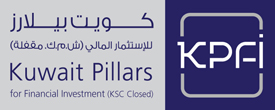Board Committees & their functions
Although the Board of Directors holds overall responsibility for the corporate governance of the Company, some of the critical functions need deeper attention and regular follow up and updating. The Board, therefore appoints some sub-committees to handle and follow up such areas under their supervision. The sub-committees submit their feedback to the Board and get the guidelines for their further functioning.
The following are the various sub-committees formed and functioning under the overall guidance and supervision of the Board taking into account the requirements as stipulated by the Corporate Governance Guidelines of the Capital Market Authority of Kuwait and by considering the support requirements of the Board.
Board Audit Committee
- Preparation and review of internal audit strategies prior to their adoption by the Board of Directors, and ensure the implementation of these strategies and policies and they suit the nature and scale of the activities of the company.
- Ensure adequate systems and resources for internal audit.
- Review periodic financial statements before submission to the Board of Directors, and give opinion and recommendation to ensure the fairness and transparency of financial reporting.
- Recommend to the Board of Directors for the appointment and reappointment or the change of the external auditors and their fees and takes in consideration, when recommending the appointment of the auditor, their independence and review the letters of appointment.
- Follow-up the work of the external auditors, and ensure that they don’t provide services to the company except for the services required by the audit profession.
- Review the external auditors’ comments on the company financial statements and follow what is done in it.
- Review the accounting policies used and give opinion and recommendation to the Board of Directors thereon.
- Assess the adequacy of internal control system in place within the company and prepare a report containing the Committee’s recommendations in that regard.
- Oversee the management of the company’s internal audit to verify the effectiveness in the implementation of actions and specific tasks by the Board of Directors.
- Recommend for the appointment of the internal auditor, move, and the isolation and evaluation of its performance and the performance of the internal audit department.
- Review and approve the audit plans proposed by the internal auditor and comment on it.
- Review the results of internal audit reports and make sure that the necessary actions have been taken.
- Review the results of regulatory reports and make sure that they are taking the necessary actions have been taken.
- Ensure the compliance of the company with laws, policies and regulations and other relevant instructions.
- Review trades and transactions proposed to be undertaken by the company with related parties.
- Appoint – yearly basis – independent audit office to assess and review the internal control systems, and to prepare a report on this matter. Audit Committee must review this report.
- Appoint – every three years – another audit office to review and evaluate the performance of office/unit/internal control Department, and issue a report to the Audit Committee and the Board of Directors.
Board Risk Committee
- Preparation and review of risk management strategies prior to their adoption by the Board of Directors, and ensure the implementation of these strategies and policies and they suit the nature and scale of the activities of the company.
- Ensure adequate systems and resources for risk management.
- Assessing and measuring systems and mechanisms and the follow-up to various types of risks the company might face to identify its shortcomings.
- Assisting the Board in identifying and assessing the level of risk is acceptable in the company, and ensure the company does not exceed this level of risk after Board of Directors approval.
- Review organizational structure of risk management and develop recommendations before approval by the Board of Directors.
- Ensure that the risk management staff have a full understanding of the risks surrounding the company, and work to raise the awareness of employees in risk culture and understanding it.
- Prepare periodic reports on the nature of the risks that the company faces, and provide such reports to the Board of Directors of the company.
- Review the issues that might be raised by the Audit Committee which may affect the associated risks in the company.
Board Nomination and Remuneration Committee
- Nomination: Identify and recommend nominations for Board Membership & the Executive Management.
- Assessment: Conduct annual review of Board structure as well as overall and individual performance, including Board self-assessment and review of skills required for Board membership.
- Remuneration: Review of Bank’s remuneration Policy and practices and recommending remuneration packages for key executives including CEO.
Board Investment Committee
- Investment Appetite – Recommendation of investment appetite for the Company to the Board.
- Investment Policy – Approval and implementation of investment policy guidelines.
- Investment Operations – Approval and enforcement of investment appraisal process and its periodical performance review.
- Purchase & Sale of Investments – Approval of purchase of new investments and disposal of existing investments.
- Strategy: Devise strategy for (a) improvement in the assets/investment quality and for (b) disposal of difficult investments.
